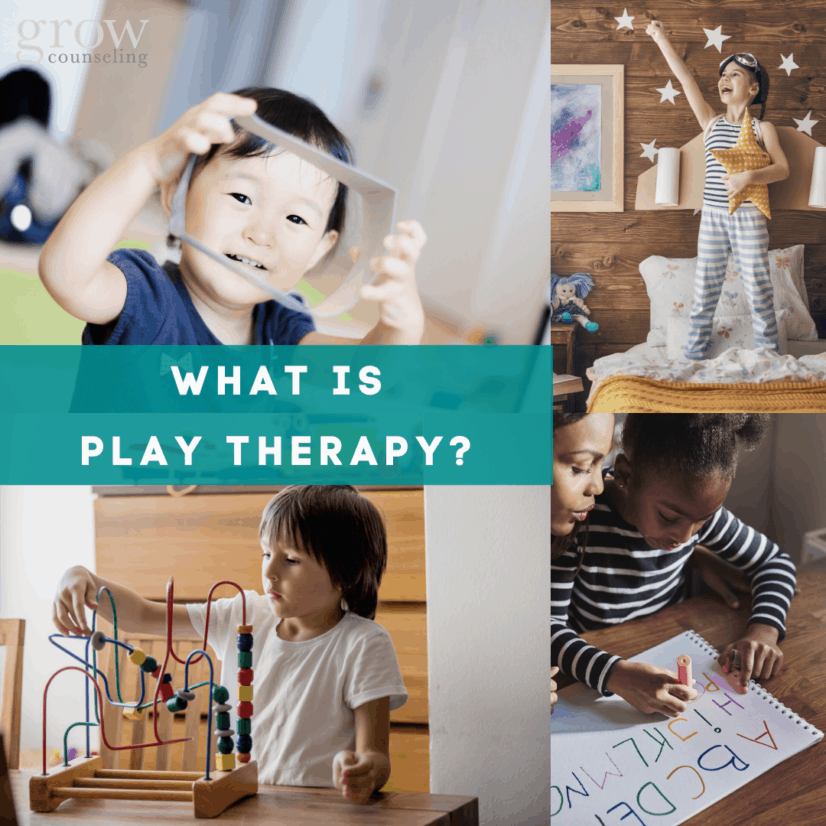Many times, parents hear about play therapy being a good option for their child, but they aren’t sure what it is. Other times, parents know their child needs support, but they aren’t aware of the options.
We are going to dive in to some of the most commonly asked questions about play and play therapy. Additionally, the Association for Play Therapy has a parent corner webpage with many resources for parents.
Play and the Brain
Before diving into play therapy, I think it’s important to talk about the benefits of play. Play provides numerous benefits. The most common being physical activity; emotional, social, and creative learning; as well as better communication skills. Essentially, play provides more learning experience for young children than a traditional classroom environment.
Now, let’s go beyond these known benefits of play for a minute and talk about the brain science involved. This NPR article provides a great overview. Play provides children (and people of all ages) the opportunity to change connections of neurons, which are special brain cells that are responsible for all functions of our being.
Researchers have found that these changes in neurons associated with the act of play, help wire, or rewire, the parts of the brain that regulate emotions, make plans, and solve problems. Essentially, play helps people develop “prosocial” brains; brains that help us make genuine connections to self and others, as well as equip us to navigate and cope with the world we live in.
What is Play Therapy?
Play is an activity that children naturally engage in. In the play therapy world, we say play is the child’s language. What that means is that children do not have the verbal language needed to effectively express their thoughts and feelings (as with traditional talk therapy).
In play therapy, toys are the child’s “words” and the play is the child’s “language.” Therapist’s who practice play therapy are specially trained to assess and understand the child’s play, use play to help children cope with difficult emotions, and aid children in finding healthy solutions to problems.
Why Play Therapy?
Play therapy (as with regular play) builds on the normal learning processes of children. However, play therapy is not the same as everyday play. Play therapy is a systemic and therapeutic approach provided by licensed mental health professionals with extensive training, supervision, and education in play therapy. Play therapy incorporates evidence-based practices and techniques in order to help children prevent or resolve difficulties.
Through play therapy, children can learn communication skills, express feelings, modify their own behavior, develop problem solving skills, and build resilience.
How will Play Therapy Benefit my Child?
Play therapy is age appropriate for children ages 3-12 years old. However, licensed mental health professionals with extensive training in play therapy can also implement play techniques with all ages of the life span. Because of life-long and lasting benefits of play, many play therapists use play therapy techniques with adults, infants, and toddlers. Play benefits everyone. There is no age limit to it’s value.
Research supports play therapy with children experiencing a variety of challenges and stressors such as divorce, death, relocation, hospitalization, chronic illness, stressful experiences, abuse, domestic violence, and natural disasters. Play therapy has proven equally effective across age, gender, and presenting problems.
In part 2, I will be discussing what a play therapy session looks like, how to find a play therapist, and how to support your child while they are engaged in play therapy.
Written by: Kelsey Ondriezek

